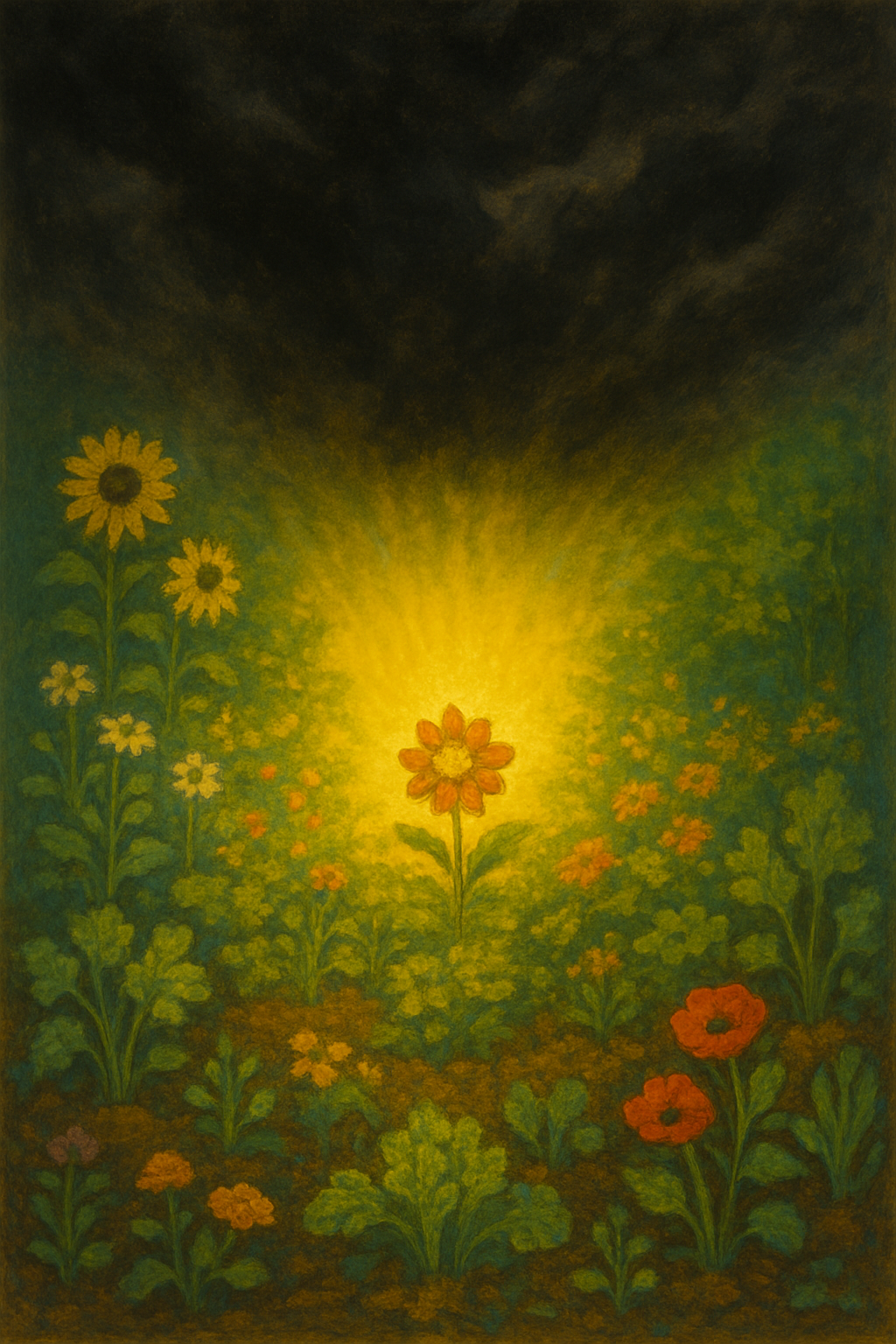I keep circling back to a phrase that dropped into my mind the other day: all grievance, no grace.
It’s a sharp fragment, like a shard of glass. And if we’re honest, it describes too much of the world we find ourselves in right now. Public debates crackle with outrage. Social feeds throb with the energy of grievances that have been rehearsed again and again. Even in smaller circles—work, family, friendships—the gravitational pull toward bitterness can be stronger than the gentle practice of grace.
Grievance clings to us. It is sticky, self-reinforcing. Once we’ve been wronged, or even feel we’ve been wronged, the mind can rehearse the wound over and over, as if keeping it alive somehow protects us. We are wired for survival, after all. Grace, by contrast, asks us to soften, to forgive, to let go. That is never easy, especially when trust feels fragile.
But here’s where the garden teaches a counter-lesson.

The Garden’s Grammar of Grace
“Come forth into the light of things; Let Nature be your teacher." - William Wordsworth
If a gardener approached the soil "all grievance, no grace," nothing would ever grow. Seeds would be blamed for not germinating, the weather cursed for its moods, pests treated only as enemies to be destroyed. Grievance may be real - it is too hot, too wet, too dry, too whatever, - but clinging to that yeilds no good harvest either.
Grace in the garden looks like patience: watering even when last week’s sowing didn’t sprout, pruning with care, trying again after a late frost. Grace is trusting that life has its own rhythms, that not every seed shows results on our schedule.
From Soil to Soul
The more time I spend with plants, the more I realize the parallel. To live all grievance, no grace is to dry ourselves out from within. It is to let resentment become our only crop. But if we can learn to compost our grievances—turning loss, frustration, and even anger into something fertile—then grace has a chance to grow.
In the garden, yesterday’s waste becomes tomorrow’s nourishment. Couldn’t the same be true in our lives?
A Gentle Invitation
The world won’t stop being unfair. But perhaps, in tending tomatoes or herbs or flowers, we can rehearse something different. A posture of patience. A willingness to keep watering. A choice to cultivate grace, even in small doses.
Maybe the garden is one of the last places where we can practice what the wider culture forgets: that growth requires not only truth about what’s broken, but also generosity toward what might yet heal.
So when I feel myself tipping toward all grievance, no grace, I go outside, work in the soil, observe the plant life and remember: the garden doesn’t hold grudges. It just keeps offering.
